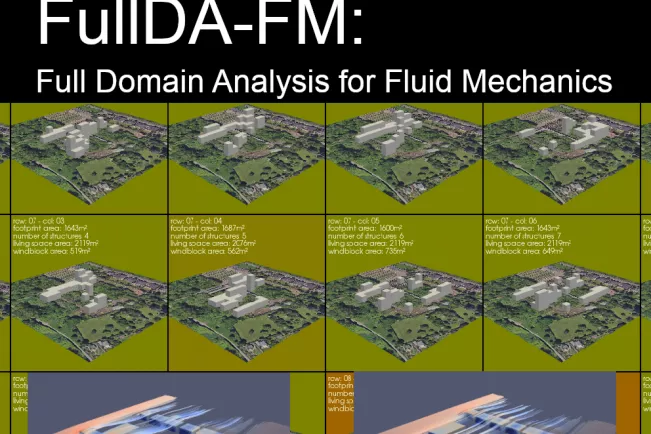Full Domain Analysis for Fluid Mechanics

Research project at a glance
Departments and Instituts
Funding type
Period
01.09.2022 to 31.03.2024
Project Description
The aim of the project is to apply AI-driven novel optimization algorithms and machine learning methods at different stages of decision-making processes in climate-adaptive urban design to model the late consequences of decisions. The algorithms are used to represent the variety of design and decision options in-silico and by example. Decisions are incorporated into the modeling - thus creating a toolset that accompanies the process. An open, free system is developed for the communication and decision-making processes of sustainable urban development where all stakeholders are involved and understand early in the construction project what impact requirements and constraints have on possible designs and can thus make more informed decisions. The system can be set up and extended with many climate adaptive factors.
Publications
Scarton, L., & Hagg, A. (2023). On the Suitability of Representations for Quality Diversity Optimization of Shapes. GECCO 2023 Lissabon.
Cooperation partners
Montag Stiftung Urbane Räume gAg
https://www.montag-stiftungen.de/ueber-uns/montag-stiftung-urbane-raeume
Neue Stadtgärtnerei e.V.
Sponsors
Initial funding by Bonn-Rhein-Sieg University of Applied Sciences
